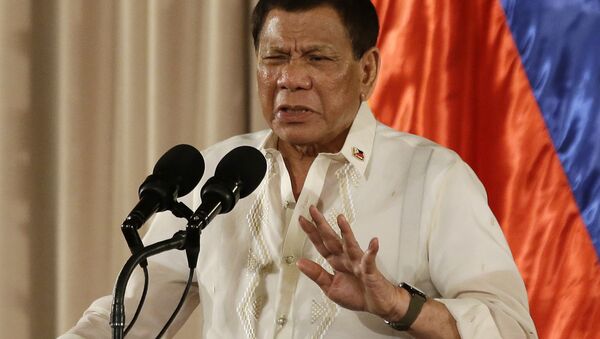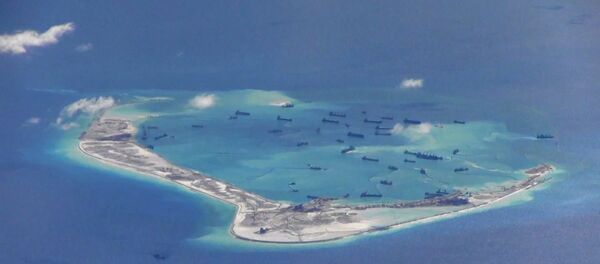In an hour-long speech, Duterte promised to defend the Philippines’ interests in the South China Sea, where the country claims a group of islands and reefs, despite positive changes in the relations between Manila and Beijing.
“Our improved relationship with China does not mean we will waiver in our commitment to defend our interest in the West Philippine Sea,” he said, at the same time noting that to this end, the country had “engaged China through bilateral and multilateral platforms, such as the ASEAN-China and the Philippines-China Bilateral Consultation Mechanism.”
The Philippine president stressed that the two countries had managed to draw up a draft framework for a Code of Conduct in the South China Sea, “which intends to resolve disputes by peaceful means.”
READ MORE: Show Me a Selfie! Philippines' Duterte Vows to Resign if God's Existence Proven
China is currently in control of the vast majority of islands, reefs and shoals in the South China Sea, which are also claimed by a number of other nations in the region, including the Philippines, Taiwan, Vietnam, Cambodia, Malaysia, Indonesia and Brunei.
In 2016, a Hague-based arbitration tribunal ruled that there was no legal basis for China to claim historic rights over areas falling within the so-called “nine-dash line” – a vaguely located demarcation line used by China to lay its claims to the biggest part of the contested waters.
The ruling also came shortly after Duterte’s inauguration, after which he decided to pursue rapprochement with China, at the same time loosening traditionally close ties with the US.
Recently published opinion polls showed that majority of the Philippines’ population wanted the government to adopt a tougher approach in laying claims to the South China Sea.
According to Pulse Asia’s survey, 73 percent of Filipinos wanted the authorities to assert the 2016 tribunal ruling, while another poll by Social Weather Stations suggested that some 80 percent of the population were dissatisfied with the government’s handling of the maritime disputes with China.





